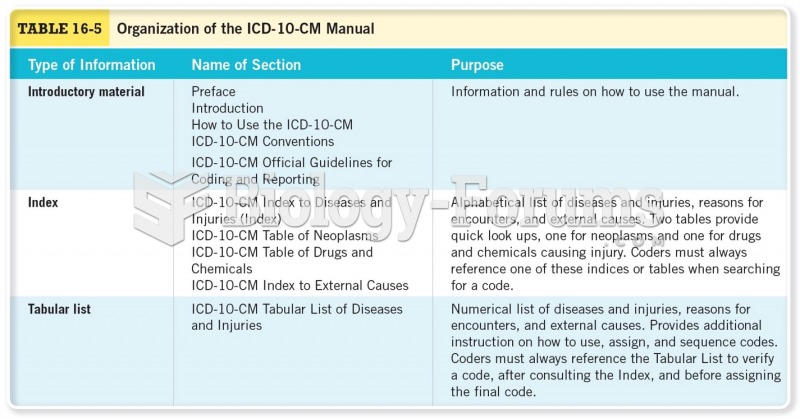This topic contains a solution. Click here to go to the answer
|
|
|
Did you know?
The B-complex vitamins and vitamin C are not stored in the body and must be replaced each day.
Did you know?
The Romans did not use numerals to indicate fractions but instead used words to indicate parts of a whole.
Did you know?
Individuals are never “cured” of addictions. Instead, they learn how to manage their disease to lead healthy, balanced lives.
Did you know?
In women, pharmacodynamic differences include increased sensitivity to (and increased effectiveness of) beta-blockers, opioids, selective serotonin reuptake inhibitors, and typical antipsychotics.
Did you know?
According to the Migraine Research Foundation, migraines are the third most prevalent illness in the world. Women are most affected (18%), followed by children of both sexes (10%), and men (6%).
 Cardiac catheterization. Insertion of a tube called a catheter through a blood vessel. In this examp
Cardiac catheterization. Insertion of a tube called a catheter through a blood vessel. In this examp
 The approval of a new drug is a four-stage process: (1) preclinical investigation, (2) clinical inve
The approval of a new drug is a four-stage process: (1) preclinical investigation, (2) clinical inve





